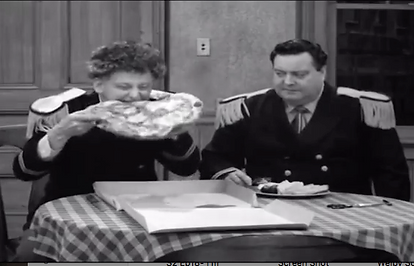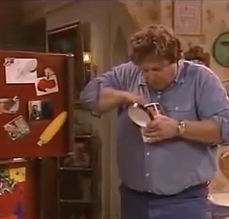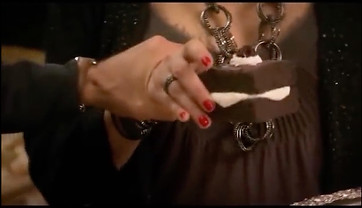
The Dieting Experience
Changing the conversation about weight loss and dieting
Dr. Laurie Patlin Suttenberg, DSW, LCSW-QS, DCSW
Willpower Through the
Video Lens
"all the world's a stage, and all the men and women merely players..."
These famous lines are in William Shakespeare’s comedy, As You Like It. In modern times, the “stage” is the video, which exists in all forms, from videos captured on cell phones to mass produced videos for television or cinema. Similar to Shakespeare’s live plays at the Globe Theater, videos entertain, enlighten, and both emotionally and intellectually engage audiences. On subliminal as well as conscious levels, we are impacted by what we see and experience in videos. Beliefs are either challenged or reinforced. In many respects, the video is not just a modern stage, but also a mirror that reflects who we are as individuals as well as a society.
I invite you to think about the attitudes and beliefs about willpower that are illuminated in the four videos that follow. All are clips from television shows that aired over a fifty year time span. As you watch each video, think about the following questions:
have attitudes about willpower changed over time?
has the experience of dieting changed over time?
The above 1956 TV clip is from a popular comedy series, The Honeymooners. Ralph Kramden is an overweight character who works diligently at his job as a bus driver, but can’t seem to stick to a diet. He is teased about his weight and insatiable appetite by his best friend, Ed Norton, and he is pushed repeatedly to diet by his loving wife, Alice.
This clip shows Ralph and Ed bringing a pizza into Ralph’s apartment late at night. As Alice retires for the night, she admonishes Ralph to eat the salad she left for him instead of the pizza. She tells Ed, “Ralph doesn’t want any pizza.” Excuse me, Alice. Oh, yes, he does. Ralph seems to accept the fact that Alice has just spoken for him. For those who have watched other shows in The Honeymooners series, we know that Ralph loudly and clearly speaks for himself. Inexplicably, he does not speak for himself when it comes to his appetite and food. Ralph attempts to follow Alice’s commands, but he is clearly tempted by the pizza.
Ed and Ralph are now alone in the kitchen with the salad and the pizza. Ed offers to take his pizza to his own apartment, and Ralph bristles at the suggestion, accusing Ed of speaking to him like he was a child. Perhaps this is how he really wanted to respond to Alice. The camera is fixed in a two-shot as Ralph attempts to demonstrate willpower by eating his salad while his friend eats pizza right next to him.

Though he tries to be satisfied with Alice’s salad, Ralph clearly also wants some pizza. The visual of the pair with their respective food choices impacts the viewers subliminally, as I spoke about in my post, Perceptions of Willpower Through Images. The clip ends as Ed and Ralph argue about the difference in size between a “teensy weensy” piece of pizza vs an “itsy bitsy” piece that Ralph intends to eat.
The Honeymooners was filmed in front of a live studio audience, thus the diegetic laughter of the audience suggests to the viewers at home that Ralph's struggle with willpower is comical as opposed to a serious health issue.
do we consider ed as having no willpower as he embarks on eating an entire pizza, or do we not consider this because he is slim?
how would we think about ralph eating his salad and wanting a taste of pizza if ralph was not fat?
does having willpower mean you can never stray from a diet, with just a "teensy weensy", "itsy bitsy" piece of restricted food?
do dieters need other people in their lives to remind, cajole, or shame them in order to have willpower?
This 1969 clip is from another beloved television series, Marcus Welby, MD. Devotees of the show knew Dr. Welby as the epitome of exemplary physician bedside manner. He cared about his patients, took an interest in their lives, and acted on behalf of his patients in a way that would only astound and baffle patients today who deal with a totally different model of healthcare delivery. His kindness, compassion, and heartfelt devotion to medicine and his patients were endearing qualities that were extolled in every episode of the dramatic series.
Well, not every episode, apparently. In this clip, we see Dr. Welby who has just weighed a teenage girl. The camera is angled so that the scale stands between us, the audience, and the patient. Dr. Welby is angry, belligerent and nasty as he berates Kimberly for being overweight. He resorts to name calling and shaming that reeks of verbal abuse. At these moments, the camera is positioned behind Kimberly. We face Dr. Welby and, like his patient, see and feel the extent of his wrath. Kimberly asks for help, but he interrupts her and cuts her off, saying all she needs is willpower. He furthermore predicts in an intimidating and accusatory manner that if she doesn’t muster willpower, she will go through life as a “jolly, FAT girl.” When Dr. Welby storms from the room, the camera tilts, and we and Kimberly are left pondering the scale.
In this clip, Dr. Welby reflects social attitudes and beliefs that lead to stigmatization, which I explored in my post, The Stigma of Willpower. For those of you that think Dr. Welby is a relic of a long ago past, read Lily’s Story on this website. Although fiction, Lily’s Story begins in her doctor’s office, and she is also berated about her perceived lack of willpower. And, most significantly, Lily’s Story takes place in 2016, several decades after this Marcus Welby, MD episode aired.

do we feel any sympathy for kimberly, or was it necessary for her physician to speak so harshly to her?
what is the appropriate way for healthcare providers to talk about willpower with patients?
how can the subject of dieting take place in a physician's office that results in patients feeling empowered rather than shamed?
should parents of teens be included in discussions about willpower and dieting?
This 1990 clip from the popular comedy series Roseanne explores the dynamics between an overweight couple, Roseanne and Dan, when Roseanne decides it is time for them to go on a diet. Roseanne’s readiness to diet somehow presumes that Dan must be ready as well. His resistance only makes Roseanne push harder and ultimately demand that Dan diet with her.

Within the first week, the camera as witness captures both Roseanne and Dan sneaking and then gorging on potato chips and ice cream respectively. Though they both devise plans to hide their cheating from the other, in the end they discover what the camera has already revealed to us, the audience.
We know from this clip that this is not a

How difficult is it to diet when you are with a partner or spouse that is not dieting?
How do you maintain willpower when you live in a house full of tempting snacks that were bought for others in the house?
Do parents have a responsibility to avoid / prohibit fattening foods in the house?
first time dieting experience for Roseanne and Dan. Their older daughter, Becky, hears Roseanne talking about their need to diet and says, “You guys going on a diet again?” The kids have heard this before. Somewhere, and perhaps from multiple sources, teen Becky inculcated the belief that "Men are supposed to get heavy when they get older. They all do. But it doesn't look good on women." Really? DJ tells his mother that he likes her “mushy”. Mushy? Darlene advises her parents to, “Face it. You’re both tanks.” What we don’t hear from any of the kids is that when mom and dad are dieting, the food in the house changes. What is even more noteworthy is that none of the children in the show are overweight.
This 2011 clip from the comedy series Curb Your Enthusiasm tells the story of the star, Larry David, who is a guest at a small dinner party. The scene begins with a medium camera shot of the room with everyone eating the dessert cake. A woman walks over to the buffet table and reaches for the last piece of cake. Larry bolts over from the couch, and the camera zooms in to a close up as he grabs her wrist, whisking the cake out of her hand.
The scene that ensues casts Larry as the personification of willpower. The woman previously asked Larry to prohibit her from having any dessert, “no matter what”. The lure of the cake and perhaps the fact that everyone else in the room is eating dessert causes the woman to change her mind, and she picks up the remaining piece of cake. When she is confronted by Larry, she attempts to justify her behavior, saying she is “only having a bite”. Acting as her willpower, Larry reminds her that she specifically asked him not to let her eat any dessert. He feels he is simply doing

what she asked him to do. Despite the woman’s protests, Larry, continuing in his role as her metaphoric willpower, persists, arguing that she told him, “no matter what” and THIS is the “what”.
The camera moves back to a medium shot to include the rest of the guests, who support the woman and, in unison, yell at Larry to back off. Larry remains committed to the promise he made earlier to the woman - that he would prevent her from having dessert “no matter what” - despite her repeated vehement objections and her having social support.
Where is willpower located - in the self; in others who impact us; or both?
Does the fact that willpower wavers make us weak?
What should we do when willpower is diminished or gone and temptation is strong?
Beliefs, once cemented, are dispersed and shared with others in the form of stigmas, as I talked about in my previous page, The Stigma of Willpower. Think about your reactions to the four videos you saw here as well as your thoughts about the questions that were posed.